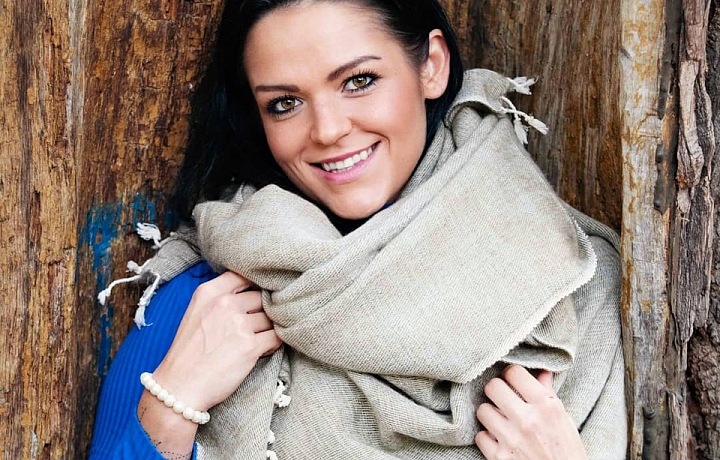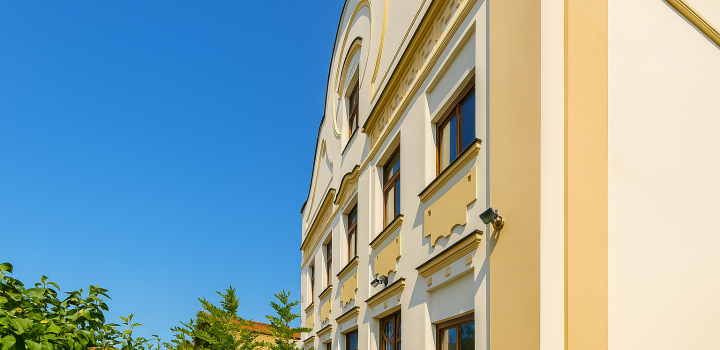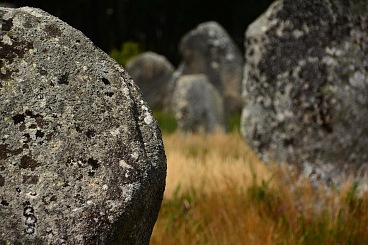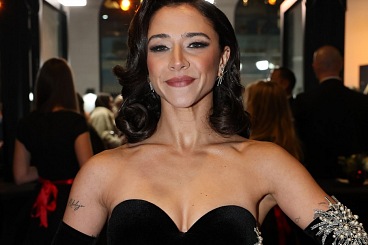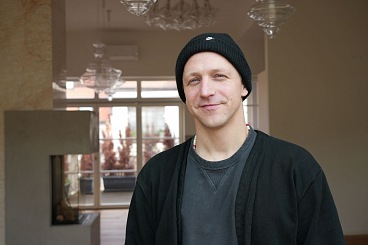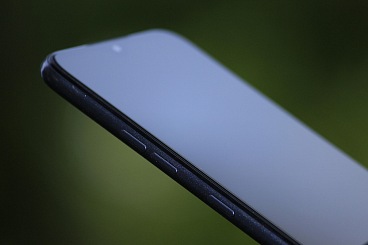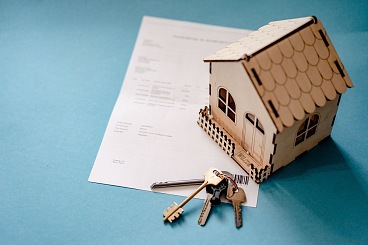Fast Confession – boxer Barbora Suchánková: I went to Bohnice at my mom’s suggestion
Not long ago, Barbora Suchánková weighed 140 kilograms and sport was her enemy. She loved partying, alcohol, food... But over time you’ll get fed up with anything. After realizing she had a severe problem, this young woman ended in an alcohol treatment program in the Bohnice psychiatric hospital in Prague twice. After that, it only took one visit to the gym and Bára found her new drug: boxing. This Czech republic representative, training in the Rohovník Praha sports club under coach Michael Soukup, who also trains the Czech national women’s boxing team, decided to turn her life around. In her interview for LP-life.com she opens up about her past, but also about her dream to get to the Olympics.
As a professional athlete, you are affected by the coronavirus as well. How did you spend the past year, regarding your training?
The only limitation we have as athletes is that there are very few tournaments and things get cancelled all the time. We're basically always preparing for something, but we don't know what for. We have been training for a tournament for half a year now, and now it’s cancelled and we have to start all over again. It‘s a terrible uncertainty for us athletes, because we don't know what will be cancelled and when, or how long it will take. But we're not limited in terms of training and the training process.
But it wasn’t like that in the beginning. Everyone faced restrictions back then.
Yes, but I believe everyone can find a way. I think that even professional athletes, if they don’t have training opportunities, can still go outside. You can train anywhere, even if it’s under difficult conditions. We trained outdoors, anywhere we could.
Did you try training in a facemask?
It’s awful. We even went running on Letná stairs in facemasks, that was an experience I won’t forget for long.
**byt/top*
Did you have COVID?
No. Or maybe I did actually have it once, but I stayed at home, I didn’t get tested. I felt worse than usual, I was more tired.
But that’s hard to distinguish, when, as an athlete, you’re tired all the time.
Exactly. But I believe I have a really strong immune system, I take care of it. Somehow it keeps missing me.
Most people gained quite a bit of weight during the lockdown, but I suppose you don’t have that problem as an athlete.
I had such a period around Christmas as well, but that has nothing to do with the coronavirus. Our training has been the same for a year, with some minor deviations, so there’s not much space for any dramatic weight gain.
What does a professional athlete’s week look like?
There are usually twelve training sessions in a week, right now I’m doing strength training. Three times a week I train boxing and lift weights, and complete the program with yoga, swimming and running. All the sessions are put in a certain order from Monday to Sunday to make some sense and allow my body to regenerate, but also keep it working all the time.
So you have training seven days a week?
Except for Sunday, that’s my free day.
And then you do what?
Lay down, mostly (laughs). But I’m an active person, I like active relaxation. I love nature, so I set off for a walk or visit my family. It feels wasteful to spend all day in bed, although such days certainly happen sometimes as well.
Your life seems to be centred around training. Do you have a boyfriend?
That’s sort of a price for it. Sport comes at the expense of personal life; there’s not really much space for it. Or maybe it’s because there hasn’t been anyone interested, or worth it, yet.
I can understand someone marrying sport and the Olympics preparation, that’s a huge goal and needs lots of preparation. Still, you’re twenty-five. I was a party animal at that age...
I went through that phase long ago. Now I believe I‘ve already drunk and partied my share. It comes with a certain stage in life. But since I already have put that stage behind me, I don’t ever need to go back to it. On one hand, I’m glad I went through it; I have my memories and didn’t miss out on anything, but I feel that I’m somewhere else now. I like to have a glass of wine with a friend, but it’s not a priority, nothing I’d need or seek.
At what age did you start partying?
We started at sixteen, seventeen. It was really early.
How did your parents take it? Mine could even tell when I'd had one beer.
We had our tricks, my best friend and I, we slept at each other’s place. I’m not saying we used to go partying every weekend at that age, but naturally, it escalated over time. The worst phase was between eighteen and twenty, I didn’t even live at home then. I lived with my ex-boyfriend, and no one had any sort of control over me. But at that age, you think you’re the smartest cookie in the world.
You went to rehab after that. But that was not because of the alcohol, but because of you, if I’m not mistaken?
It was all together. Even though I had quite some alcohol and drug problems at that time, the real reason was my mental state. I had severe mental problems.
I guess that’s something that cannot be understood without experiencing it. What made you decide to get hospitalized? What was going through your head?
You don’t even want to know what was going through my head, it was something awful. Looking back I know I brought all this on myself. I was not deranged. Now I don’t even believe there’s such thing as depression, but back then I was so confused about everything, I had no clue who I was, what to do with my life. I was really just surviving. A lot of factors had caused it, the conditions I lived under, the job I was doing, it all just hits you one day.
Where did you work? In a bar?
In a pub.
And your boyfriend?
Often he was unemployed, and even if he did have a job, it was just construction work and such. Naturally, he didn’t bring home much money, so I was working all the time, since I had to pay rent.
So despite all that you were responsible enough to remember you have to pay rent.
You just have to. Groceries, rent, phone, you have to pay for the basics. But since I was at work so often, I needed some help to keep me running. It’s not a nine-to-five job, usually, I was working sixteen or fourteen-hour shifts.
Did you still go to school with all that on your plate?
No, not since I was nineteen. Before that I'd had a part-time job in a café, that was not so bad yet.
What did you study?
Graphic design.
And why didn’t you pursue that? Surely it would have paid better than working in a pub.
I liked that pub, all the parties, events and money – easy money, lots of it. In graphic design you have to have experience, you don’t have that many options right after high school.
When did you decide it had to stop? Was it during a hangover?
It was my mom’s doing, actually. It was her who intervened. I left my ex, because there were more problems with him, including physical ones, and returned home.
Was he violent?
Sometimes.
But you were bigger back then...?
I was, I weighed 140 kilos, but that doesn’t mean anything. I believe that when someone senses inner weakness from you, he knows what he can dare to do to you. It doesn’t matter whether you weigh two hundred kilos or fifteen. It’s the mental, psychical weakness that allows people to do whatever they want with you.
So your mom intervened, she told you it can’t go on like this.
Yes, that it can’t go on like this, that I can’t keep living like this. She told me to do something for her once in my life and go to rehab.
That happened when you were twenty?
Yes, nineteen or twenty.
What does it look like in there? What kind of people do you meet there?
Junkies and alcoholics.
They say that if you put a young person in jail, they will only learn everything wrong that they didn’t know before. How is it in rehab?
It basically works the same, since they have to prepare you for the life outside. There’s a strict regime from morning to evening. It’s not like you lie in your bed for half a day. You get up in the morning, have a morning exercise, then you have to clean up, do all kinds of tasks and such, really a brutal regime to get people used to the fact they’re not there on a vacation, but that they have to work really hard in order to be able to do the same outside.
Was that a shock to you?
It was not that much of a shock, I was used to hard work. I didn’t care that we had to mop the floors there. But it was demanding mentally, with all the therapies. Hearing all the brutal stories from people there, what happened to them. Parental abuse and such was not the worst I heard about, some of those were such stories that even remembering them makes my stomach hurt.
Did you feel that compared to them, you’re still doing well?
I did, often.
How long have you been there?
For the first treatment, I spent about four months there, then two months for the second one.
Why twice?
Because I had a relapse. I went home thinking that I was okay, that I had no problems at all. Then I found out I did, so I had to return.
When did the breaking point come? You never liked sports before.
No.
You didn’t even have physical education at school?
Well of course I did have that. I knew the basics, I went to dancing, aerobic or volleyball club, but I always lost interest soon. On one hand, I’m not one for team sports; it was frustrating and boring for me. Nothing spoke to me enough for me to want to pursue it. I saw nothing in it; I didn’t enjoy running around or doing physical activities, I saw no point in it (laughs).
So how did you get to the gym?
My best friend took me. She called me and said, hey. I started doing boxing classes; it’s kinda fun, there are some cool guys. That got my attention (laughs). She raved about how great it was, how it helped her lose weight and such. I saw it as an impulse as well, a chance to meet new people and start doing something with myself. I thought it couldn't hurt to give it a try.
How much did you weight back then?
130-ish.
I can’t even imagine that; you can’t even walk properly at that weight.
It’s hard. I had tons of health problems, up until today I can’t understand how I could have done something like that with my body. But I was very stressed and dealt with it by emotional eating. And that’s hell on earth, it’s a spiral you can’t stop.
I know that, sometimes I dig a spoon in a jar of Nutella as well.
It’s okay as long as you keep it to a healthy extent. Once it becomes an addiction, it’s wrong.
So you had food and alcohol addiction.
Something like that, yes.
No drug addiction?
I don’t think so. I had some problems of that kind, but not severe.
Then suddenly you came to the gym with that weight, handsome guys all around... Weren’t you ashamed?
I was, I was super stressed. I was shaking, nervous. But everyone was so chill in there, all smiles. I saw guys whacking the punching bags, and I liked it. Everyone was friendly there.
No one was looking down at you?
No. I was awfully scared that someone would poke fun at me, but nothing of the sort happened. My first coach in Hostivař was great. He took me under his wings, and we got cracking. After the first class, it was terrible, you can’t do anything. When you can’t even walk properly, you can hardly do any physically demanding activity. But then it somehow shifted.
Didn’t you have that moment where you felt in the beginning that you couldn't do this?
I didn’t even want to come back after that first time. I was sure I couldn't do it.
Who forced you to go back, who motivated you?
I motivated myself. Paradoxically, I told myself I couldn’t give up again. I gave it one more chance, then I started to come more and more often and it got physically easier and easier. It’s the same with everything; you just have to hold on through the first, hellish phase. It’s all about having a strong will.
At what stage did you start to enjoy it? How much weight did you lose after some time?
I lost some weight, about 25 kilos. But I was still over a hundred, it was still not what I wanted. But I already felt better and I started to enjoy it tremendously. Another impulse came when we agreed I could have my first match. That marked a completely new era for me; I got hooked on it.
Doesn’t punching people feel weird to you?
No, it’s not (laughs). Lots of people see box as a brutal sport, and of course that’s partially true, but it’s still only a sport. You have to take it that way, I don’t go there to compensate for anything, to hurt people. That’s not my motivation at all, I like it because the sport is very technical, it’s about what you do throughout your whole day, about morals. It’s not about bashing your brains out.
Did you have any injuries? What was your worst boxing injury?
I think I had a crick in my back once. I have been very lucky so far, staying clear of all injuries. I haven’t even had a broken nose or a split eyebrow, I don’t even know how that’s possible. Of course, there have been some black eyes, but that’s all just minor injuries.
So you had your first match at 100 kilos. Did you win?
I did.
How did it feel?
Absolutely euphoric, I didn’t even know what was happening to me, but suddenly I felt I was leaving everything bad that had ever happened to me behind. It was a fresh start for me.
At that point, you decided to lose 40 more kilos?
No, that came much later. My weight was staying more or less the same, I wasn’t able to stabilize it. I had no understanding of eating habits; I kept doing everything wrong all the time. My decision to drop all that weight came two years ago.
So you were twenty-three then. How long did it take to lose the 40 kilograms?
It took over a year. It’s all about the diet.
So they taught you how to eat properly.
Exactly. What I should, what an athlete’s diet should look like. I think diet pills are bogus, it’s all about food, strong will and persuasion. And a good training plan.
Do you go to work?
Yes, I still have a job.
Where do you work?
I work for the Nala endowment fund; I do all of their art projects and graphic works.
So you came back to it.
Yes. I also started studying Tibetan medicine; I’m preparing course books for Tibetan medicine courses, editing the texts and the like. I enjoy it very much.
With a training session two times a day.
Exactly.
Now that you turned from a 130-ish heavyweight to a sexy woman, how does shopping feel to you? What clothes do you like to buy?
I’m not into shopping; I don’t delight in it.
Okay, but when I lose five kilos, I run to buy something immediately.
It’s a great feeling when you walk into a store and you can buy anything you want. It’s incredibly liberating.
How did people around you react?
Everyone said it was great, a great change. Everyone rooted for me. But then, maybe not everyone (laughs).
Do you think you have some enemies from the past?
Not exactly enemies from the past, but I know a lot of people who are envious and don’t like seeing other people’s success.
Do you get hate mail?
No, I don’t, but you hear something from the grapevine hear and there. But it’s not the kind of stuff that could hurt me. I believe pot should not call kettle black.
It’s great that you talk about your past. You never know when those skeletons peek out of the closet.
Yes, that can happen with anything, anytime. But I believe it’s enough if you don’t make it a big deal. Karma works.
How much do you weigh now?
I keep it at about 85 kilos stably.
So what weight class do you box in?
Lately, I’ve been in both „plus“ and „81“. But I’m still trying to get to 75 kilos. However, it’s a much longer process now than before, my body was used to living in an extreme state for a few years, and now it’s much harder to get it to its previous state and keep the weight stable.
When you drop this much weight, your body must be suffering from stretch marks and extra skin. Have you thought about getting some kind of cosmetic surgery?
I’ve been thinking about getting some laser treatment or something, but I’ll see about that. I told myself that first I want to get to my goal weight and wait for a bit until it’s stable. But I’ve definitely been thinking about it.
When are the Olympics?
In four years, hopefully.
So you want to get to the Olympics weighing 75 kilos before your thirtieth birthday.
Exactly. I feel like you still have time before you’re thirty. I’m not really a family type, someone who wishes for a wedding and children. Of course, I want that somewhere in the future, but right now my priorities are set as they are. I enjoy this immensely; I enjoy my job and I want to keep pursuing it for another five years. After that, there might be time for something else. Priorities change over time.


